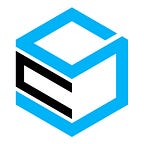What are blockchain oracles and why do we need them?
Blockchain applications live in their own digital ecosystem, totally unconnected to the real world. Decentralized applications and smart contracts, operate in a digital world outside the networks and information that controls and directs the affairs of the real world. For decentralized, digital ecosystems to react to conditions in the real world they need a bridge to transfer the information in a decentralized and trustless manner, how can a decentralized app efficiently and securely interact with the physical world?
We need gateways to input/output with the physical realm, these gateways/bridges are called “oracles”.
Oracles are trusted entities signing claims about the state of the world, that can be verified by any number of network nodes operating in the decentralized network.
Hardware oracles
Local and private data source
Some applications require information or readings from the physical world, where the data exists only within a specific object (or person). Measure must be done locally, and often in real time. As the data is private, accuracy of the information cannot be asserted neither by a public feed nor by consensus. Some applications and use cases concerned by these setups are:
- Industrial: supply chain, traceability, energy…
- Sharing economy: peer to peer car/flat renting, smart objects…
- Insurance: car safety premiums, personal health…
- Finance: Fractionalized NFT’ and shared ownership models
- Advertising: Big data mining, targeted promotional campaigns
By way of an example consider insurance companies pricing comprehensive car insurance using a smart contract insurance where drivers would pay a premium directly related to their behaviour on the road. Drivers guilty of speeding would pay a high premium which would go in a pool shared by all good drivers. Road safety associations could locally contribute to pools to bring even bigger incentive for good driving.
The difficulty in this approach is to find a secure and non-tamperable way to monitor the speed of vehicles, erratic driving, : if one were able to either simulate a perfect driving or to attach the tracker to another car, the insurance system would be totally gameable and ultimately collapse.
Cryptographically attestable anti-tampering sensors
To be able to securely report a reading (from any kind of sensors), the combination of the following is necessary:
- a cryptographic attestation of the sensor reading, authenticating the origin of the measure: each device has a private key signing outgoing payloads (with a nonce to avoid replays)
- an anti-tampering installation of the reader device, rendering it inoperable (by wiping the private key) in case of manipulation attempt (connect to another object, inject false stimuli, etc.)
These secure reading devices are called Hardware Oracles and are the gateways from the physical work to the Blockchain world.
Deployment of these oracles require provisioning of the system (master attestation keys and device identification keys) and establishing a proof of installation strategy to supervise their correct initial installation (to make sure they are measuring what we want them to measure). Trust on the long term is guaranteed by staking oracles with slash-able deposits, anti-tampering features and private keys’ protection through a Secure Element.
By design, this approach is neither trustless nor fully decentralized, it does however provide mechanisms that are publicly verifiable and accessible by any node on the network via public API’s. In the case of the car’s smart contract insurance example, the tracker must have the proper attestation keys (therefore bought from specific vendors) and an audit strategy must be put in place to randomly verify the proof of installation, proof of existence and proof of existence (therefore requiring some external trusted parties/auditors).
However, as most of the Hardware Oracles’ use cases require some sort of centralization or authority, this design is a perfect match.
Decentralized apps for industrials, insurances and the sharing economy won’t exist without reliable Hardware Oracle technologies. We predict a massive deployment of these devices in the long term
